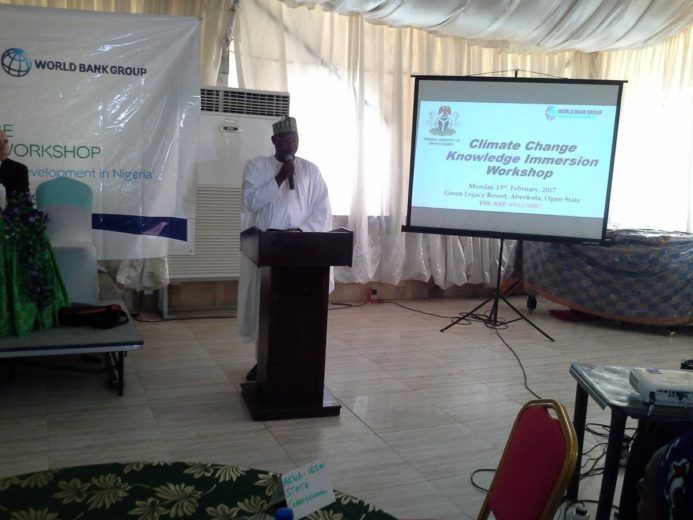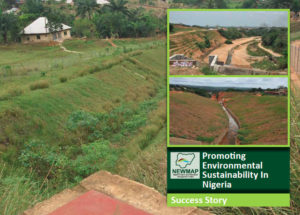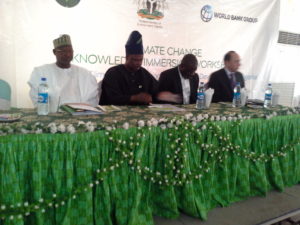
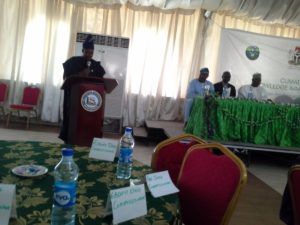
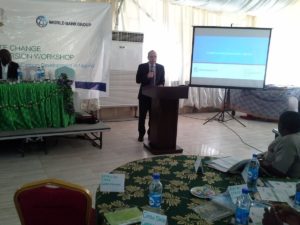
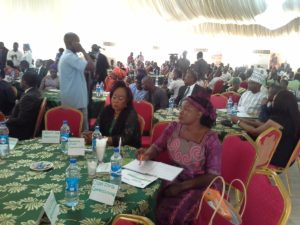
The Department of Climate Change, Federal Ministry of Environment in collaboration with the World Bank and the Nigeria Erosion and Watershed Management Project, recently organized series of /informative workshops on Climate Change; tagged: Knowledge Immersion Workshops across two geopolitical zones and the Federal Capital Territory Abuja. The workshops held at different times and venue between 12th and 17th February 2017. The Workshop series took place as follows;
- Workshop 1: State Governments from South (Ogun) – 12-13 Feb 2017
- Workshop 2: State Governments from North (Kaduna) – 15 Feb 2017
- Workshop 3: Members of Parliament, NASS (Abuja) – 16 Feb 2017
- Workshop 4: Federal Line Ministries (Abuja) – 17 Feb 2017
Participants were drawn from all sectors; ranging from Commissioners of environment from all the states; Representatives coming from Federal, State and Local governments, the Legislature, private sector, civil society, press men, school children and the general public. The attendance from each of the four segments was very huge . The objective of the workshop was to enlighten Nigerians about the issue of climate change and the impact on our social economic development, with the understanding addressing effects/issues of Climate Change is not the sole responsibility of Federal government but that of all stakeholders( from federal, state to local governments). The staging of these workshops at the states was to encourage those at the states and Local levels to contribute to National Actions on Climate Change. The event included knowledge management and information on facts as regards climate change and its effects; and promotion of discussions among Nigerian stakeholders, towards accelerating climate-resilient and low-carbon development in Nigeria. The specific objectives of the workshops were:
- To improve understanding of global climate change science, trends and ambitions of climate action.
- Share understanding of climate change impacts, opportunities and goals in Nigeria.
- Recognize role of stakeholders in implementing sectoral and multi-sectoral climate actions, and,
- Call to action – stakeholder’s engagement. Proactively seeking out opportunities in enhanced policy frameworks, financing, project design and implementation
